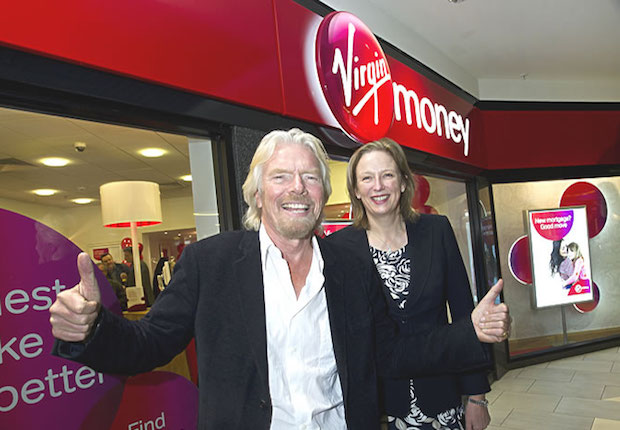
Virgin Money had a mean gender pay gap of 36% at April 2016, according to the organisation’s 2016 annual report.
The financial services organisation recorded a median gender pay gap of 39% at April 2016.
The pay gap has been attributed to the under-representation of female employees in senior leadership roles and the under-representation of of men in more junior positions.
Virgin Money had a gender pay gap of 0.6% in the lowest pay quartile, 1.7% in the second quartile, 2.5% in the third quartile, and a 13.8% gender pay gap in the highest pay quartile.
Virgin Money has voluntarily published its gender pay gap data ahead of the publication date set by the government of April 2018. The current timeline for mandatory gender pay gap reporting requires employers to capture data on 5 April 2017 and then publish findings no later than 4 April 2018, with this cycle continuing on a yearly basis.
The reporting regulations require organisations with 250 or more employees to publish the difference between both the mean and median hourly rate of pay for male and female full-time employees; the difference between both the mean bonus pay and median bonus pay for male and female employees; the proportions of male and female employees who were awarded bonus pay; and the proportions of male and female full-time employees in the lower, lower middle, upper middle and upper quartile pay bands.
Virgin Money has set a target to achieve a 50:50 gender balance by 2020 as part of its commitment to the Women in Finance Charter, which asks organisations within the financial services sector to commit to increase the representation of women in senior management positions.
The percentage of women holding senior management roles increased from 18% to 22% between 2015 and 2016. As of January 2017, women made up 31% of Virgin Money’s executive committee and their direct reports.
In 2016, Virgin Money focused on a range of measures to reduce the gender pay gap, such as unconscious bias training for senior managers, the launch of an app that enables staff on parental leave to stay in touch with the business and access personalised information, the promotion of shared parental leave, and the establishment of a Gender Agenda Network designed to organise events and increase education.
The organisation also incorporated a gender analysis tool into its annual pay process to help managers see the impact salary and bonus decisions have on the gender pay gap within their teams, and introduced a flexible matching recruitment policy that commits to matching senior prospective employees’ current flexible-working arrangements.
Virgin Money plans to take further action to address the gender pay gap and meet its Women in Finance Charter commitments in 2017. This includes setting bonus targets for all senior leaders to improve gender balance; extending unconscious bias training to all people managers and diversity training for those preparing to take on people management roles; offering a maternity mentoring scheme to all staff.
The organisation will also continue to promote flexible-working arrangements by establishing a flexible-working register to increase job sharing, upgrading IT systems to better enable flexible working, and committing to allowing employees to work from home one day per week where possible.
According to the 2016 annual report, the average salary increase for employees across the organisation was 4% in 2016.
Jayne-Anne Gadhia, CBE, chief executive officer at Virgin Money, said: “Looking at April 2016 pay, Virgin Money had a gender pay gap of 36%. We are confident that men and women are paid on equal terms for doing the same jobs across the business, but the under-representation of women in the senior leadership team and of men in more junior areas of the business, creates this pay gap. This is not acceptable and we are committed to remedying it.”
Matt Elliott, people director at Virgin Money, added: “We intend to be early adopters of the UK government’s new gender pay gap reporting requirements and support the findings of both the Hampton-Alexander and Parker reports, which advocate action to generate improved gender and ethnic equality in business.
“We will continue to celebrate difference and work to ensure every [employee] feels equally valued and able to thrive at Virgin Money.”